
Summary Report |
HTML |
PDF |
English |
|
|
Español |
|
|
Portugues |
|
|

 |
|
Global Renewable Energy Forum in Brazil
18 May- 21 May 2008 | Foz do Iguaçu, Brazil
Highlights for Tuesday, 20 May 2008
|
|
 |
| |
Daily Web Coverage
Sunday, 18 May - Monday, 19 May - Tuesday, 20 May -Wednesday, 21 May |
|
El martes los delegados participaron en seis mesas redondas:
Ronda de Discusión 1: “Grandes Hidroeléctricas – Potencial y Panorama”, moderada por Albert Geber de Melo, Centro de Investigación de Energía Eléctrica (CEPEL). Jorge Miguel Samek destacó que el valor de Itaipu en el mercado actual es de US$ 60 mil millones.
Ronda de Discusión 2: “Energía Solar – Potenciales de aplicación industrial y usos productivos”, moderada por Laura Porto, Directora del Departamento de Desarrollo Energético, Ministro de Minería y Energía, Brasil. Xi Wenhua, Director del Centro Internacional de Energía Solar de UNIDO para la Promoción y Transferencia de Tecnologías, dijo que China ha construido 13 millones de metros cuadrados de edificios solares en los últimos años y ha desarrollado más de 80.000 equipos de cocinas solares.
Ronda de Discusión 3: “Bioenergía – Biocombustibles como alternativa viable a los combustibles fósiles”, moderada por João José de Nora Souto, Ministro de Ciencia y Tecnología, Brasil. José Tubino, Organización para la Alimentación y la Agricultura (FAO), se refirió a las oportunidades y riesgos que el uso de bioenergía supone para la seguridad alimentaria en Latinoamérica y el Caribe.
Ronda de Discusión 4: “Energía Eólica – Potencial global y oportunidades”, moderada por Alberto Geber de Melo. Erico Spinadel, Presidente de la Asociación Argentina de Energía Eólica (AAEE), señaló que existen alrededor de 600.000 bombas de agua eólicas en uso en La Pampa.
Ronda de Discusión 5: “Bioenergía – Potenciales y desafíos en la industria”, moderada por Carlos Cristo, Ministro de Desarrollo Industrial, Brasil. Pradeep Monga, Jefe de la Unidad de Energía Renovable y Rural de UNIDO, identificó los factores que inducen el desarrollo de la biomasa, entre los que se incluyen: los precios altos y volátiles del petróleo; el cambio climático; las políticas agrícolas y de mercado; y cuestiones relacionadas con la sostenibilidad y los avances y la eficiencia tecnológica.
Ronda de Discusión 6: “Pequeñas Hidroeléctricas – Potenciales y oportunidades”, moderada por Antônio Otelo Cardoso, Director Técnico de Itaipu Binacional. Tong Jiandong, Director General, Red Internacional sobre Pequeñas Centrales Hidroeléctricas, explicó que hay muchas definiciones diferentes sobre los pequeños generadores hídricos que se usan alrededor del mundo y destacó lo difícil que es darse cuenta del potencial de las pequeñas centrales hidroeléctricas. |
Morning Round Table: “Large Hydropower – Potential and Outlook”
|
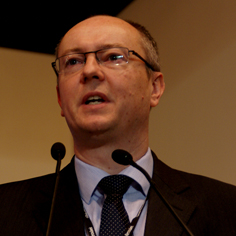 |
|
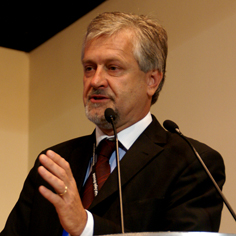 |
| Richard Taylor, Executive Director, International Hydropower Association |
Jorge Miguel Samek, Brazilian Director-General of Itaipu Binational |
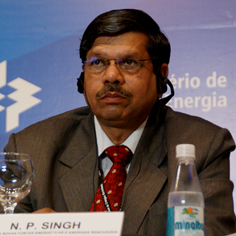 |
|
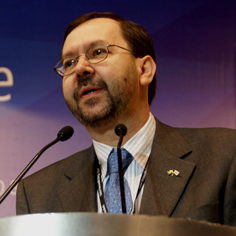 |
|
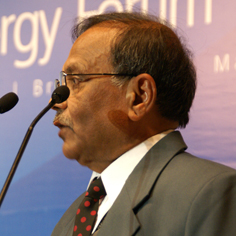 |
N. P. Singh, Ministry of New and Renewable Sources of Energy, India |
|
Albert Geber de Melo, Centro de Pesquisas de Energia Eletrica, Moderator |
|
Shree Govind, Technical Manager of Binational Project Pancheshwar, India & Nepal |
| Round Table: ”Solar Energy – Potentials in Industrial Applications and Productive Uses”
|
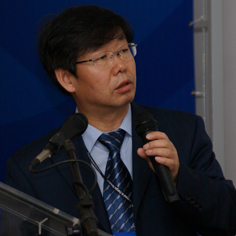 |
|
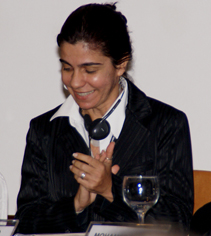 |
Xi Wenhua, director, UNIDO International Solar Energy Center for Technology Promotion & Transfer, highlighted the Solar Energy International Center (ISEC) launched in cooperation with UNIDO and the Chinese government.
|
|
Laura Porto, director, Department of Energy Development, Ministry of Mines and Energy, Brazil, moderated the roundtable on potential of solar energy in industrial applications and productive uses. |
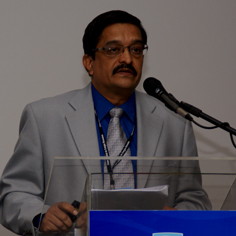 |
|
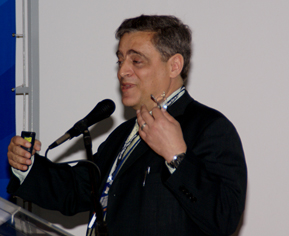 |
Shirish Garud, Renewable Energy Technology Applications, TERI |
|
Hamilton Moss, Power Research Centre (CEPEL), Brazil, underscored the role of photovoltaics for rural electrification. |
Round Table 3: ”Bioenergy - Liquid Biofuels as a Viable Alternative to Fossil Fuels” |
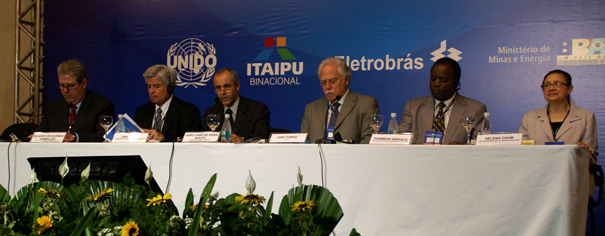 |
| Ricardo de Gusmão Dorneles, Director of the Department of Biofuels, Brazil, Dan Arvizu, Director of National Renewable Energy Laboratory, US, João José de Nora Souto, moderator, Ministry of Science and Technology, Brazil, José Turbino, FAO, Thomson Sinkala, Chair of the Biofuels Association of Zambia and Helena Chum, National Renewable Energy Laboratory, US |
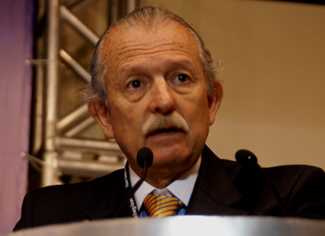 |
|
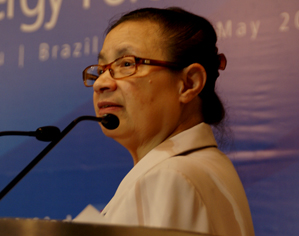 |
|
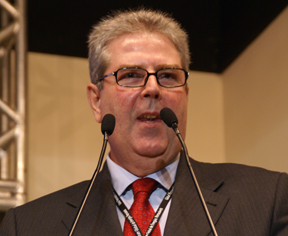 |
Arturo Infante Villarreal, National Coordinator of the Sustainable Development of biofuels, Colombia, noted that the national policy is oriented to promote sustainable production of biofuels and diversify its energy matrix.
|
|
Helena Chum, National Renewable Energy Laboratory, US, noted the importance of innovation on biofuels. |
|
Ricardo de Gusmão Dorneles, Director of the Department of Biofuels, Brazil, noted that the production of biofuel promotes the diversification of the energy matrix. |
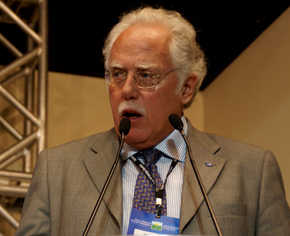 |
|
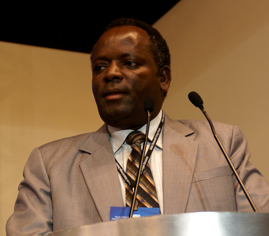 |
|
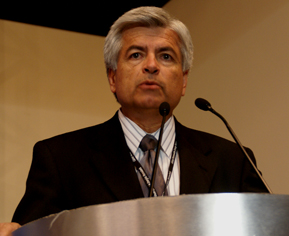 |
José Turbino, FAO, outlined the opportunities and risks for the use of bioenergy and food security in Latin America and the Caribbean.
|
|
Thomson Sinkala, Chair of the Biofuels Association of Zambia, outlined compelling issues for Zambia’s engagement in liquid biofuels, including: energy security, high oil prices; energy deficiency for industry and domestic needs; and opportunity for poverty reduction. |
|
Dan Arvizu, Director of National Renewable Energy Laboratory, US, noted the promise for renewables can be realized if we aggressively seek a global sustainable energy economy, accelerate investment in technology innovation and acknowledge and mitigate the carbon challenge with the necessary policies.
|
Round Table 4 : "Wind Energy: Overall Potential and Opportunities" |
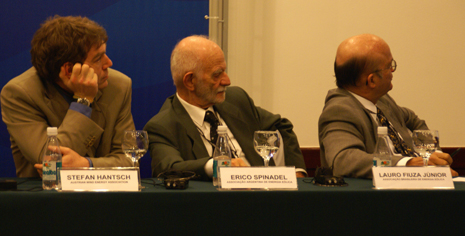 |
|
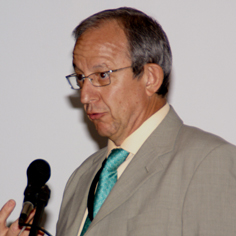 |
| Stefan Hantsch, Secretary General of Austrian Wind Energy Association, Erico Spinadel, President of the Argentinean Association of Wind Energy (AAEE), Lauro Fiuza Junior, President of Brazil Wind Energy Association. |
|
Telmo Gabarain Astorqui, Iberdrola, said that low windpower development in Latin America is due to the large hydroelectric potential, which is cheaper. |
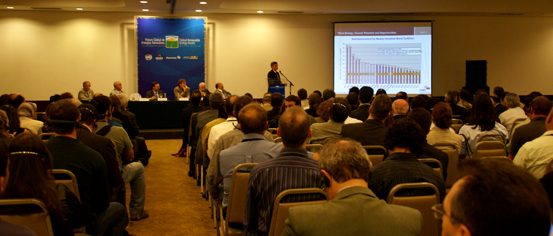
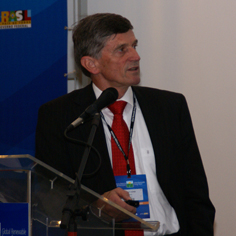 |
|
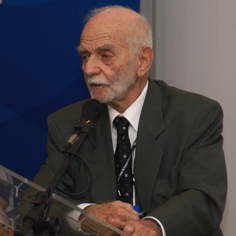 |
| Jens Peter Molly, Executive Director, German Wind Energy Institute (DEWI), noted commercial hub heights of up to 160m, and predicted 10MW turbines by 2010. |
|
Erico Spinadel, President of the AAEE underscored that Germany’s installed windpower capacity is larger than all of Argentina’s electric capacity. |
Round Table 5 : "Bioenergy – Potentials and Challenges in Industry" |
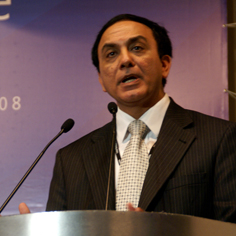 |
|
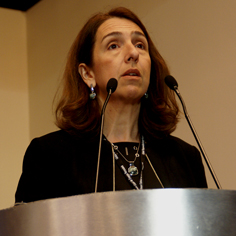 |
|
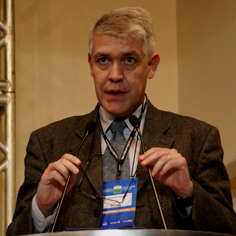 |
Pradeep Monga, Chief of the Renewable and Rural Energy Unit, UNIDO, outlined bioenergy and its potentials and challenges for the industry sector.
|
|
Semida Silveira, Head of Division of the Energy and Climate Studies, School of Industrial Engineering and Management, Sweden, said that Africa and Latin America are the regions with the biggest potential for the production of bioenergy. |
|
Arnaldo Cesar Da Silva Walter, Campinas University (UNICAMP), Brazil, highlighted the importance of the concept of biorefineries, noting the existence of different levels of integration.
|
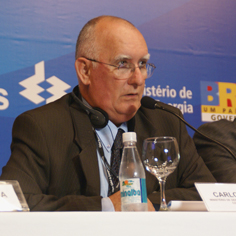 |
|
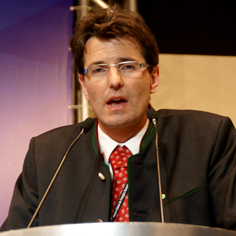 |
Carlos Cristo, moderator, Ministry of Industrial Development, Brazil, noted the challenges for developing new technologies.
|
|
Hubert Seiringer, Chairman of Austrian Compost and Biogas Association, noted that biogas will play a large role in the future energy mix. |
Round Table 6 : “Small Hydro – Potentials and Opportunities” |
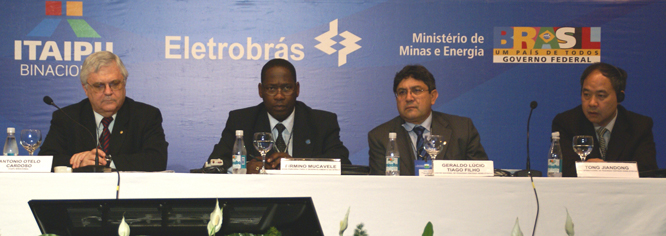 |
| Antonio Otelo Cardono, ITAUPU Binacional, moderator, Firmino Mucavele, New Partnership for Africa’s Development (NEPAD), Geraldo Lúcio Tiago Filho, Secretary-Executive, National Centre of Small Hydroelectric Plants, Brazil, Tong Jiandong, Director-General, International Network on Small Hydro Power |
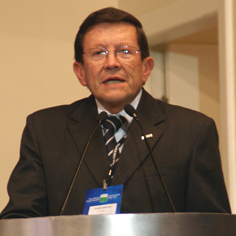 |
|
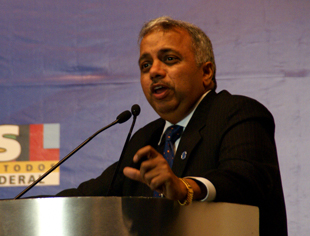 |
|
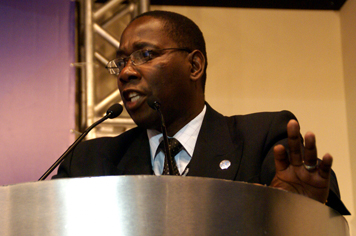 |
Mentor Poveda, OLADE, outlined the small hydro potential in the Latin America region and noted the importance of including energy efficiency in national plans.
|
|
Arun Kumar, Alternate Hydro Energy Centre, IIT Roorkee, India. |
|
Firmino Mucavele, New Partnership for Africa’s Development (NEPAD), outlined the problems faced by African countries, such as: low economic development; high concentration of population in rural areas; and high oil costs; and increases food insecurity. |
|

